
Part 2 MARK STATMAN: MEXICO AND THE POETRY OF GRIEF AND CELEBRATION
Part 2 of my interview with Mark Statman looks closely at Mark’s Latin American poetic influences, his life in Mexico and ends with an extract
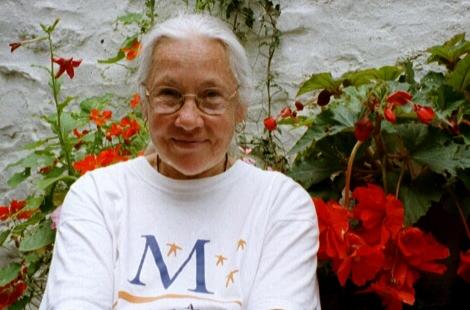
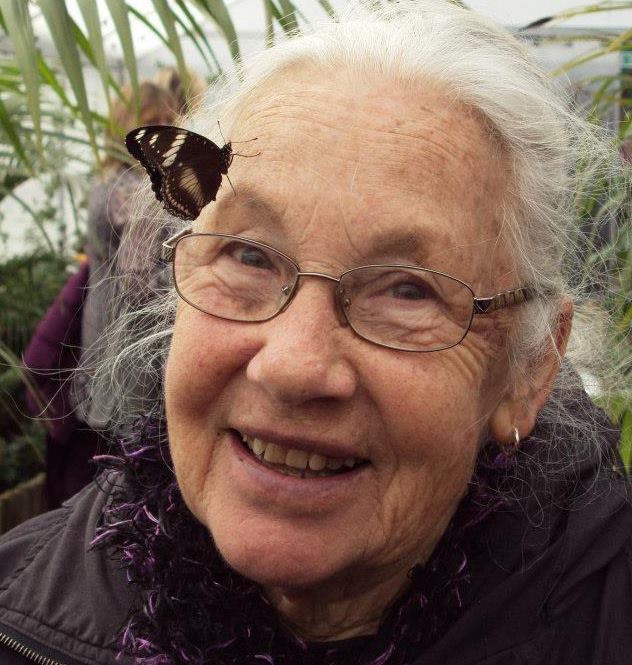
I interviewed Marian Van Eyk McCain who, on her Elderwoman site, discusses women aging and ‘sage-ing’. Marian describes her women-centred writing as “An advertisement for the simple life – a rediscovery of the sacred in the ordinary… An oasis on the spiritual journey.”
Leslie: A major theme of your writing is aging. Can you tell us the story of how this focus in your life began, grew and developed? How would you summarise the key points you’ve made in your writings about aging?
Marian: My focus on aging began in 1988. I was living in California and just finishing a Master’s degree in East-West Psychology at the California Institute of Integral Studies in San Francisco. It was time to choose a topic for my MA thesis and my favourite teacher – the brilliant and legendary cross-cultural anthropologist Angeles Arrien – said to me “Choose a subject that has heart and meaning for you.” It was the best advice ever. At that time I was 52, just starting into menopause and fascinated by the changes, not just in my body but in my whole being. So I not only read everything I could find on the subject – medical journals, feminist writings, historical and anthropological literature – but I designed an in-depth study that examined the thoughts, feelings and experiences of a whole lot of other menopausal women and analysed their responses. The main conclusion I came to was that the medical profession and the pharmaceutical industry were in the process of hijacking menopause, just as they had hijacked childbirth in the past, and turning it into a medical problem that needs treatment rather than the highly significant psychological, emotional and spiritual rite of passage in a woman’s life that it is. When you see it that way – and go though it consciously and mindfully, day by day, with that idea in mind – it changes the entire experience from one of pain and inconvenience to one of growth and discovery.
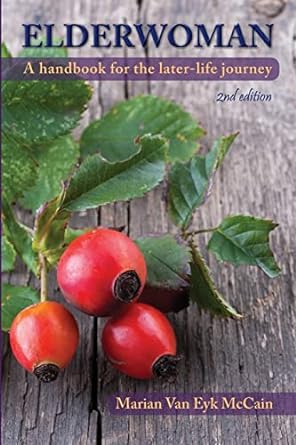
I was so excited by my findings that after I had graduated I decide to turn my thesis into a book that would help women redefine their menopause in this way and derive meaning from it. That book, Transformation through Menopause, was published in 1991 and is still selling copies. I followed it up with a second book, this time about what happens after menopause. Elderwoman is exactly what its subtitle says – a handbook for the later-life journey. It is the guidebook I would like to have had as I moved gradually into old age but it didn’t exist so I had to write it myself.
Leslie: How has aging affected you since those books? What would you say to people like me who experience negative physical effects that appear more genetically-determined than lifestyle-related? (I think aging sucks…)
Marian: I suppose the key things for me, right from that 1988 moment, have been self-observation, moment-to-moment mindfulness, curiosity and an overall sense of life as a journey and a grand adventure. Yes, aging sucks. I hate it that at 87 I can no longer walk confidently without my walking stick and find it harder and harder to get up hills. Joints that get stiff and sore stay stiff and sore instead of getting better. I used to adore travel and now it exhausts me – especially as I have always tried to stay out of the air and travel overland, at least in Europe. So now I stay home. I have lost interest in a lot of the activities I used to enjoy. My back aches. And I have developed a heart condition. Yet I know that this last phase of my life has a spiritual meaning of its own and that is what I am currently exploring. Plus, I am convinced that even though I am no longer able to go on protest marches or sit in a tree to stop the loggers chopping it, I can still help our beautiful but beleaguered Earth by loving it like crazy. And I can continue my dedication to living a simple, green life, keeping my eco-footprint as small as possible and encouraging others to do the same with my writing on simplicity, downshifting etc.
Leslie: Tell us about your short stories. Do they have common themes and concerns? How do you generate the large number of characters needed for several short fictions? What are the key settings/events you’ve adapted from your personal experience, and how (and why) have you modified life to fit fiction?
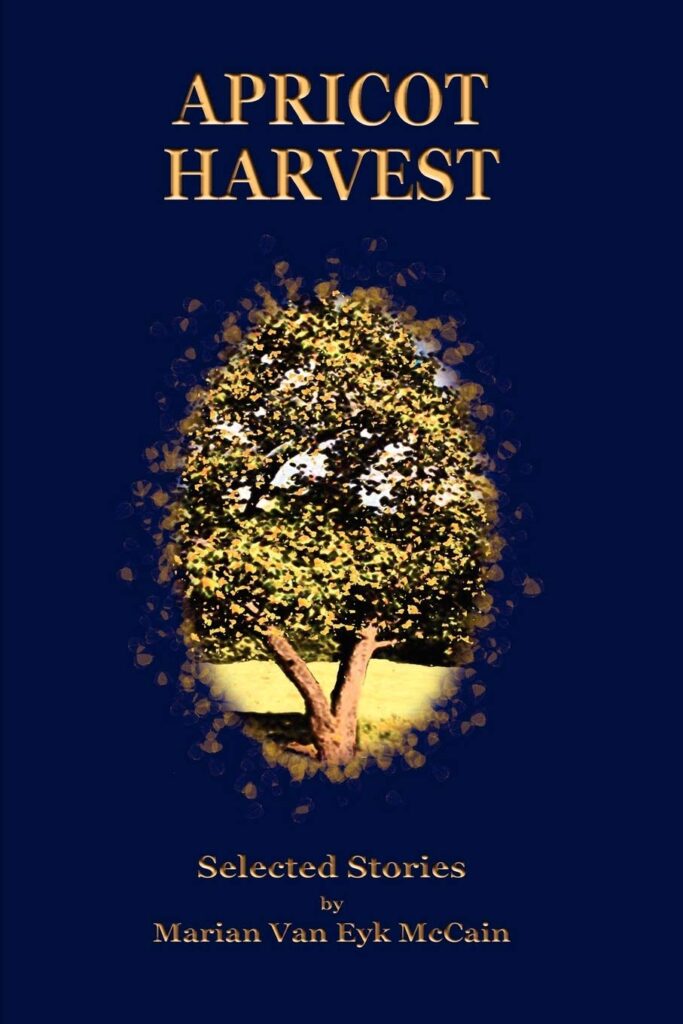
Marian: I find it really hard to answer questions about the fiction I have written – which consists of one novel and a bunch of short stories – because fiction-writing is something that I haven’t done for many years and will probably never do again and I honestly have no idea where any of those stories or characters came from. Something – usually an image – would just pop into my mind and somehow a story would write itself around it. I had no idea what my characters were going to do next. I just followed them around, writing down what they did and said and thought. Here’s an example: one day, completely out of the blue, I saw a mental image of a young, red-headed woman walking down the street and out of curiosity I followed her. I discovered that she was heading for the laundromat and so, I suddenly decided, was I. So in my mind I followed her in, sat next to her and engaged her in conversation. She told me a story of something that had happened to her. That became a short story. I never published it but later that woman and her story played a minor role in my novel. This whole thing is a totally mysterious process and I have no idea how I did it, especially as it is something I haven’t done in years.
So yes, a lot of the detail is based on my own experience. For example, the title story in my Apricot Harvest collection features a couple building their own house in the Australian outback, which is what my partner and I did in the mid-1990s. One of the main characters in my novel, The Bird Menders, has the exact physical appearance of someone I once knew. And the little Italian town in the novel is a real place I have been to many times. The novel also features an environmental issue I feel strongly about (the killing of wild songbirds in southern Italy) and so the royalties from that book go to LIPU, an organization that was set up to try and put a stop to that practice.
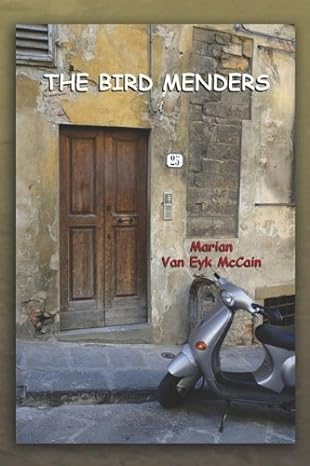
If there is any theme that connects the short stories it is a fascination with what I call ‘the edge of mystery’ – i.e. experiences that leave you wondering ‘did that really happen or did I imagine it?’
Leslie: What are the differences and similarities that factual and imaginative writing share in terms of approach to the task, style, tone and content?
Marian: I don’t know how other writers would answer this but for me, one of the similarities is that the causes I care about, particularly the environmental ones, feature in most of my writing, including, albeit to a much lesser extent, the fiction. Another similarity is that because I have lived and worked on four different continents, the settings vary considerably in both types of writing.
The main difference is that the factual writing in my books, articles and blog posts is all geared to the things that interest and inspire me and which I think might interest and inspire others. The task of the fiction has simply been to amuse myself and to entertain others and, sometimes, to see if I can win a writing competition!
As regards style, it is hard to answer what the differences are as it seems to me that style is something that the reader recognizes more easily than the writer. (My contribution to Colleen Sell’s anthology A Cup of Comfort for Writers told the story of how my high school English teacher recognized my style before I even knew I had one. (I never dreamed she would know I had done my friend’s homework for her!)
I do know that when I’m writing non-fiction my style is quite chatty and self-disclosing. Several reviewers have commented that I write as though I was talking to a friend. And enjoy writing in the first person. What my fiction style is, I have no idea!
Leslie: In your non-writing life as a psychotherapist, workshop leader and spiritual person, what have been the milestones/key experiences/tipping points? How have they shaped the person you are today?
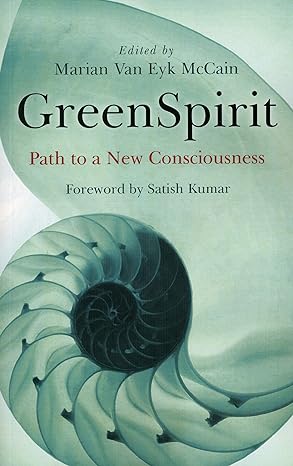
Marian: For me, one of the most significant things is that although I come from a well-educated family I came to higher education late in life. I left school in 1952 at the age of 16 and was a Jill-of-all-trades until I stopped work in 1965 to give birth to my first child. Later, once my children were at school, I went back to school myself and spent the next six years eagerly lapping up knowledge and becoming professionally qualified. Yet in all my ‘people-related’ work over the years that followed it was often my personal experience of having done a lot of different kinds of jobs in various different settings and related to many different sorts of people that proved more useful to me than my ‘book knowledge.’
However, there are two writers whose work I first discovered at University who have both been a huge influence on me. One was Carl Jung and the other is Ken Wilber, whose Integral Theory, for me, has been one of the most important and interesting frameworks of understanding that I have ever encountered.
My childhood spiritual background was the Anglican version of Christianity but, as I described in my editorial introduction to the book GreenSpirit: Path to a New Consciousness, I always felt more spiritually at home outside in natural surroundings than I ever did in a church and a key ‘peak experience’ at the age of 15 cemented that for me. Even so, it took me more than 30 years to find a community of spiritually like-minded people. That was in Australia. And then when I returned to England I discovered GreenSpirit and have not only been a member of that organization since 2003 but was a Trustee for many years and have been an editor of the GreenSpirit magazine since 2005 – a task which I still enjoy hugely.
My family and friends, my ‘green’ lifestyle, my Gaian spirituality, my writing – these are the things that continue to give meaning and purpose to my life as it draws ever nearer to its close.
Next week, I interview poet Tracey Rhys, whose first collection told the inside story of raising an autistic son.
ABOUT LESLIE TATE’S BOOKS:

Part 2 of my interview with Mark Statman looks closely at Mark’s Latin American poetic influences, his life in Mexico and ends with an extract

I interviewed international poet and translator Mark Statman about Volverse/Volver, his 14th published collection. Mark, who has won national arts awards, is Emeritus Professor of Literary

I interviewed Lisa Dart, finalist in the Grolier, Aesthetica and Troubadour Poetry Prizes and author of The Linguistics of Light (poems, Salt, 2008), Fathom (prose

I interviewed writer Julia Lee Barclay-Morton about her experience of autism. Julia began as an experimental dramatist in New York, moving to the UK to

I interviewed Gillean McDougall from Glasgow, who edited the collaborative projects Honest Error (on Charles Rennie Mackintosh and his wife Margaret Macdonald) and Writing the
| Cookie | Duration | Description |
|---|---|---|
| cookielawinfo-checkbox-analytics | 11 months | This cookie is set by GDPR Cookie Consent plugin. The cookie is used to store the user consent for the cookies in the category "Analytics". |
| cookielawinfo-checkbox-functional | 11 months | The cookie is set by GDPR cookie consent to record the user consent for the cookies in the category "Functional". |
| cookielawinfo-checkbox-necessary | 11 months | This cookie is set by GDPR Cookie Consent plugin. The cookies is used to store the user consent for the cookies in the category "Necessary". |
| cookielawinfo-checkbox-others | 11 months | This cookie is set by GDPR Cookie Consent plugin. The cookie is used to store the user consent for the cookies in the category "Other. |
| cookielawinfo-checkbox-performance | 11 months | This cookie is set by GDPR Cookie Consent plugin. The cookie is used to store the user consent for the cookies in the category "Performance". |
| viewed_cookie_policy | 11 months | The cookie is set by the GDPR Cookie Consent plugin and is used to store whether or not user has consented to the use of cookies. It does not store any personal data. |
2 responses
A fascinating woman and a very interesting take on aging and writing. All the best to Marian and thanks, Leslie. ♥
🙂 🙂 🙂